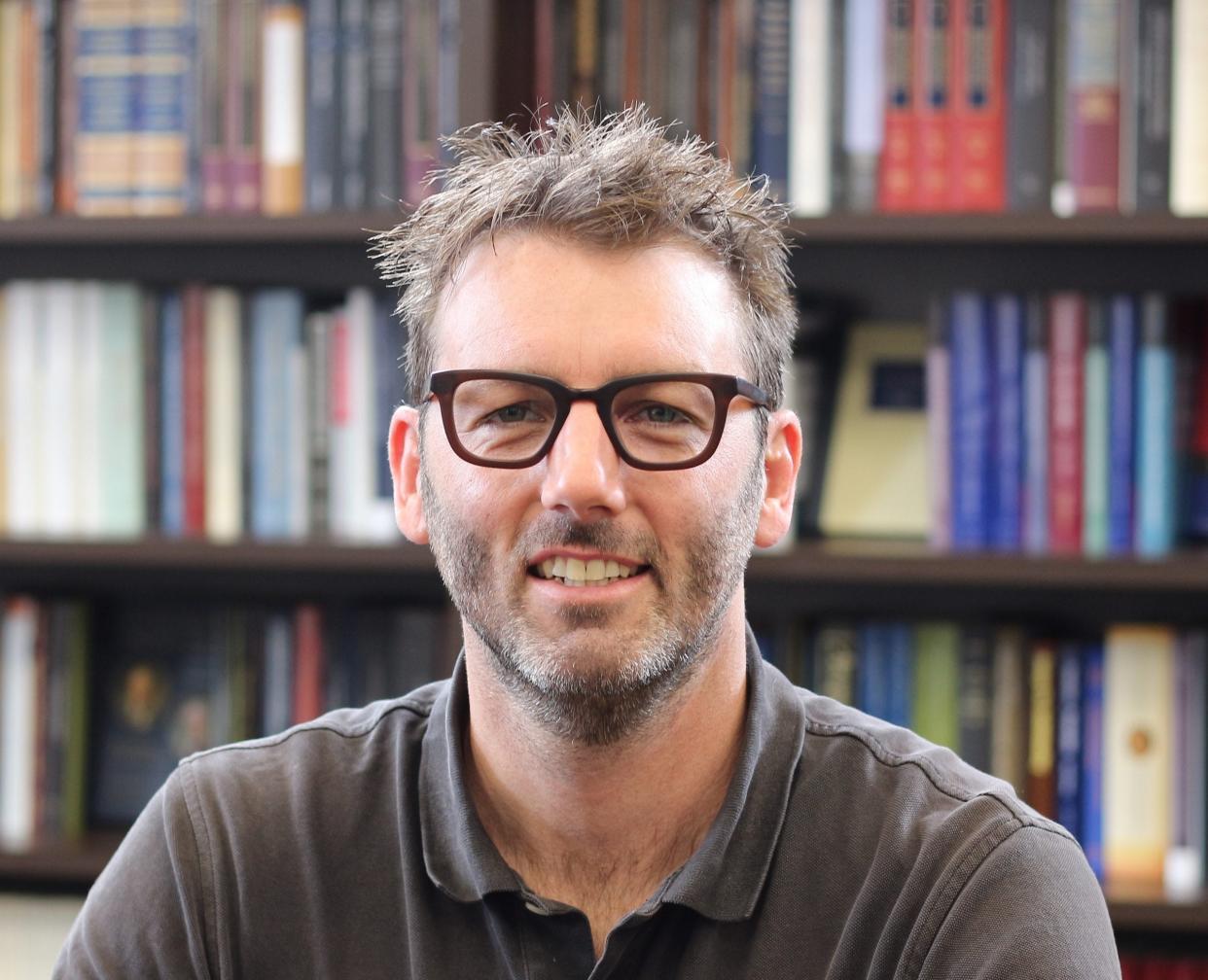MU students provide hope for America's political future, new Kinder Institute director says

His students make the new director of the Kinder Institute on Constitutional Democracy at the University of Missouri bullish on the future.
Jay Sexton last week was named as the second director of the Kinder Institute. He has been at the institute since 2016, serving as Rich and Nancy Kinder Chair in Constitutional Democracy and professor of history.
Established in 2015 with gifts totaling $35 million from the Kinder Foundation, the Kinder Institute is an interdisciplinary academic center. It was established to promote excellence in teaching and scholarship about American constitutional and democratic principles, history and traditions.
Sexton's previous work has been at the University of Oxford and the University of Cambridge in England.
The current generation of MU students gives him hope for the future, Sexton said.
"I think students aren't as polarized as their parents and grandparents," Sexton said. "They're not into talking points. They're independent-minded."
More: MU forms Kinder Institute with $25 million gift
He made his comments in relation to a discussion about the televised Jan. 6 House committee hearings. The committee members are succeeding in framing the hearings in a way that Americans can understand them, Sexton said.
"They've got to get to the bottom of what happened and hold to account those who are responsible and do it in a way that's of national interest rather than partisan," Sexton said. "I think they've threaded the needle."
The attack and continued political polarization constrains the U.S. in its ability on the world stage, he said.
"I would encourage people to think about the global stakes," Sexton said.
Congresswoman Liz Cheney has been instrumental in making the hearings successful, he said.
"She is what a real patriot looks like," Sexton said of Cheney.
Students from different persuasions need to be able to gather in the same room, listen as much as they talk and express differences respectfully, he said.
It's only natural that there are political differences, and life would be boring if there weren't differences, he said.
"Differences can be aired respectfully, but creative solutions can be found," Sexton said.
One example is the bipartisan gun reform framework in Congress. Nobody is happy with it in that nobody got everything they wanted, but progress was made, Sexton said.
"That's the way democracy has to happen," Sexton said. "Compromise is a sign of vitality and strength of democracy."
The founding of American democracy is another good example of that, he said.
Compromise shouldn't be interpreted as weakness, Sexton said.
"Extreme ideological conflict has led to real trouble," Sexton said.
The Kinder Institute offers students internships in Washington, D.C., opportunities to study abroad and other advantages, he said.
He wants to build upon what his predecessor established, he said.
"I think our goal is to be a world leader in the research of early American history," Sexton said. "It's very much in our grasp to achieve that goal."
Founding director Justin Dyer has been with the institute since its start in 2015, but is moving on to serve as director of the new Civitas Institute at the University of Texas at Austin.
Roger McKinney is the education reporter for the Tribune. You can reach him at rmckinney@columbiatribune.com or 573-815-1719. He's on Twitter at @rmckinney9.
This article originally appeared on Columbia Daily Tribune: Jan. 6 committee has successfully 'threaded the needle,' says Sexton
